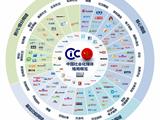From the Surface to the Core: Did Google's Phone Really Fail? uwep
Since Google released its own branded phone Nexus One at the beginning of this year, it seems to have encountered nothing but setbacks. First, weekly sales were less than 20,000 units, accompanied by after-sales service issues. Then, Verizon, the first heavyweight partner, announced the termination of cooperation with Google on the Nexus One. Just one month later, recently, Sprint, the third largest mobile operator in the U.S., also announced that it would not provide services for the Nexus One and would instead focus on another Android phone. These signs indicate that Google's own branded phone Nexus One has indeed encountered significant setbacks. Some foreign blogs claim that Google's attempt to directly sell Android smartphones like the Nexus One to users has failed. Is this really the case? Perhaps judging solely from the poor sales of Google's own branded phone Nexus One and the abandonment by partners might suggest so. However, if we revisit Google's original intentions behind the release of the Nexus One and place it within the context of the entire smartphone market, I believe that the seemingly failed performance of Google's Nexus One is actually a victory for Google's overall Android smartphone strategy.
Although when Google initially released its own branded Nexus One phone, the outside world viewed it as a rival to Apple's iPhone and evaluated Google's smartphone strategy accordingly. At the time, I wrote several articles analyzing the initial intentions behind Google's release of the Nexus One and the potential risks that could arise. The simple conclusion was: Google did not just release a phone; it was a strategy to boost and accelerate the popularization of the Android system. This widespread adoption ultimately manifests as an increase in the number of partners and the growth of Android's share in the smartphone market. This shifts the standard for measuring the success or failure of Google's Nexus One from the phone itself to its impact on the overall market performance of the Android system and the influence on partners. So what are the facts today?
Since the release of the Nexus One, according to the latest statistics from NPD Group, smartphones using Google's Android operating system accounted for about 28% of U.S. smartphone sales in the first quarter, second only to RIM BlackBerry phones which hold a 36% market share. Meanwhile, Apple's iPhone sales dropped to third place in the first quarter; its share in the smartphone operating system market remained steady at 21%, the same as the previous quarter. Additionally, reports from AdMob, a mobile advertising service provider, show that as of last September, only two devices based on Google's Android OS (HTC Dream and HTC Magic) accounted for 96% of traffic. By March this year, the same amount of traffic came from 11 devices based on the Android OS. In March's Android OS traffic, Motorola's Droid alone accounted for 32%. This allowed traffic from Google's Android OS to surpass iPhone OS for the first time in the U.S. market in March, with 46% versus 39%. On a global scale, traffic from devices running Google's Android OS increased from 19% last September to 25% in March this year, while Apple's iPhone OS traffic slightly decreased, remaining around 37%.
From the above market performance of Google's Android, it may well be that Google's high-profile launch and low-key promotion strategy for its own branded phone Nexus One, such as not advertising on TV or other media, and not providing subsidies for the Nexus One in operations, allowed Google's strategic partner Motorola's Android OS-based Droid phone to soar. Naturally, this also meant an acceleration in the popularization of Google's own Android OS. Moreover, the industry's previous concerns that Google's promotion of the Nexus One would affect the enthusiasm and interests of partners proved unfounded. The number of Android OS partners did not decrease but rather rose significantly. I thus believe that whether intentionally or unintentionally, the poor performance of Google's Nexus One today has instead contributed to the expansion of Google's Android ecosystem, especially benefiting strategic partners (Google included). Isn't this the ultimate goal of Google's release of the Nexus One?
Some might argue that in the U.S. market, operators have relatively more say, and the rupture of cooperation with operators is a loss for Google. But looking at Google's subsequent partners after terminating cooperation with Verizon and Sprint and the models they exited, namely Verizon's HTC Incredible and Sprint's HTC EVO 4G (claimed to be the most powerful Android smartphone in the industry), it's not hard to see that it's still an Android-dominated world. In fact, considering that mainstream smartphone manufacturers like Motorola and HTC have more influence in terms of brand and application compared to Google, given that Google is still an internet company, it makes sense that for Google, abandoning its own Nexus One and instead leveraging its partners' strengths results in better market outcomes. This can be seen as giving up peanuts to gain watermelons, a win-win situation!
Through the aforementioned analysis of the apparent failure of Google's Nexus One phone, I believe that when evaluating a technology or product, we should consider it within the context of the company's overall related strategy and use the overall success or failure of the strategy as the standard for judgment. We must delve deeper beyond surface appearances; otherwise, we will only see through a glass darkly and fail to recognize the true situation, leading to erroneous conclusions. For reviewers, it’s just one article, but for Google's competitors, making decisions based on such conclusions could mean taking unnecessary risks.
Customer Service 360 is a platform that provides online services for businesses, helping you with various business applications on the Internet and enhancing your overall corporate competitiveness. When potential customers visit your website, customer service can initiate invitation dialogues via Customer Service 360. Through these dialogues, friendly exchanges, and contact information collection, Customer Service 360 can enhance and optimize all stages of marketing and after-sales service.
This allows you to spend less time tracking more sales opportunities, make more accurate marketing strategies, and improve after-sales service accuracy, thereby achieving continuous growth in sales performance.
Official Website of the 360 Online Customer Service System: www.kefu360.com
Consultation hotline: 021-32557299



